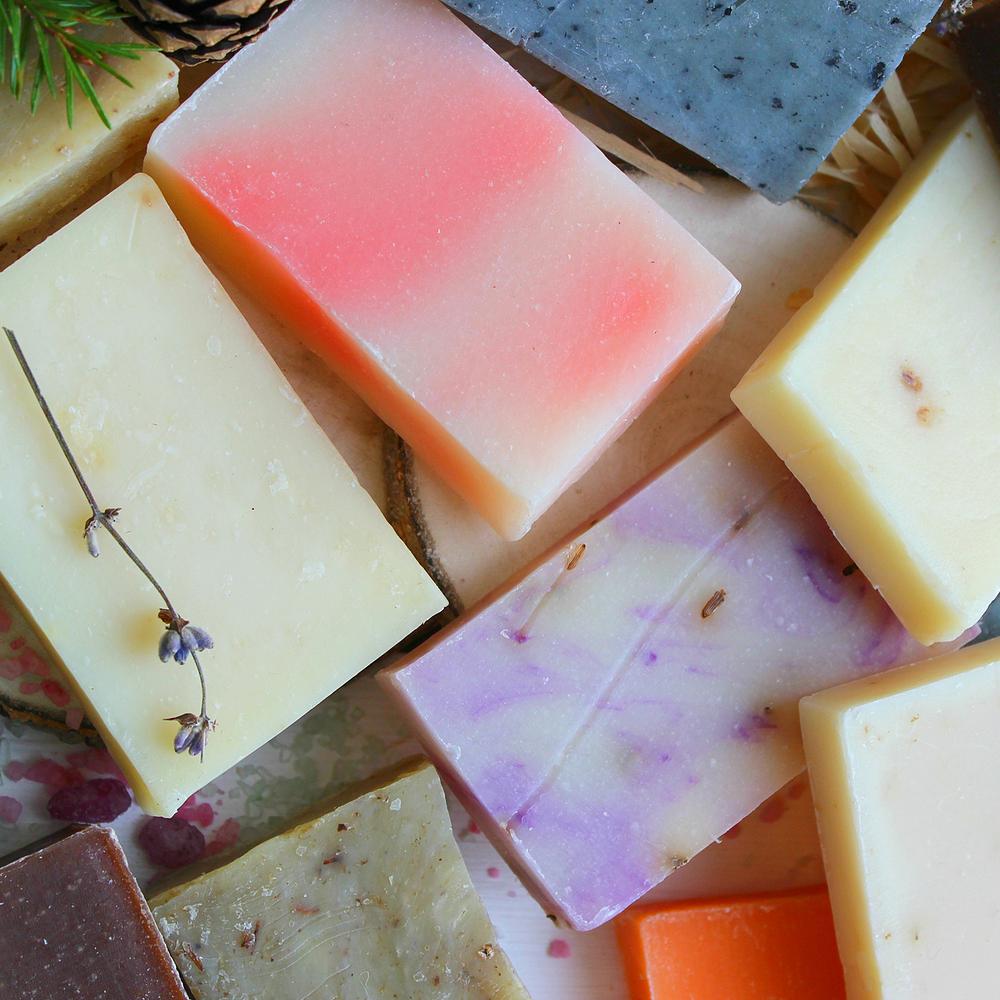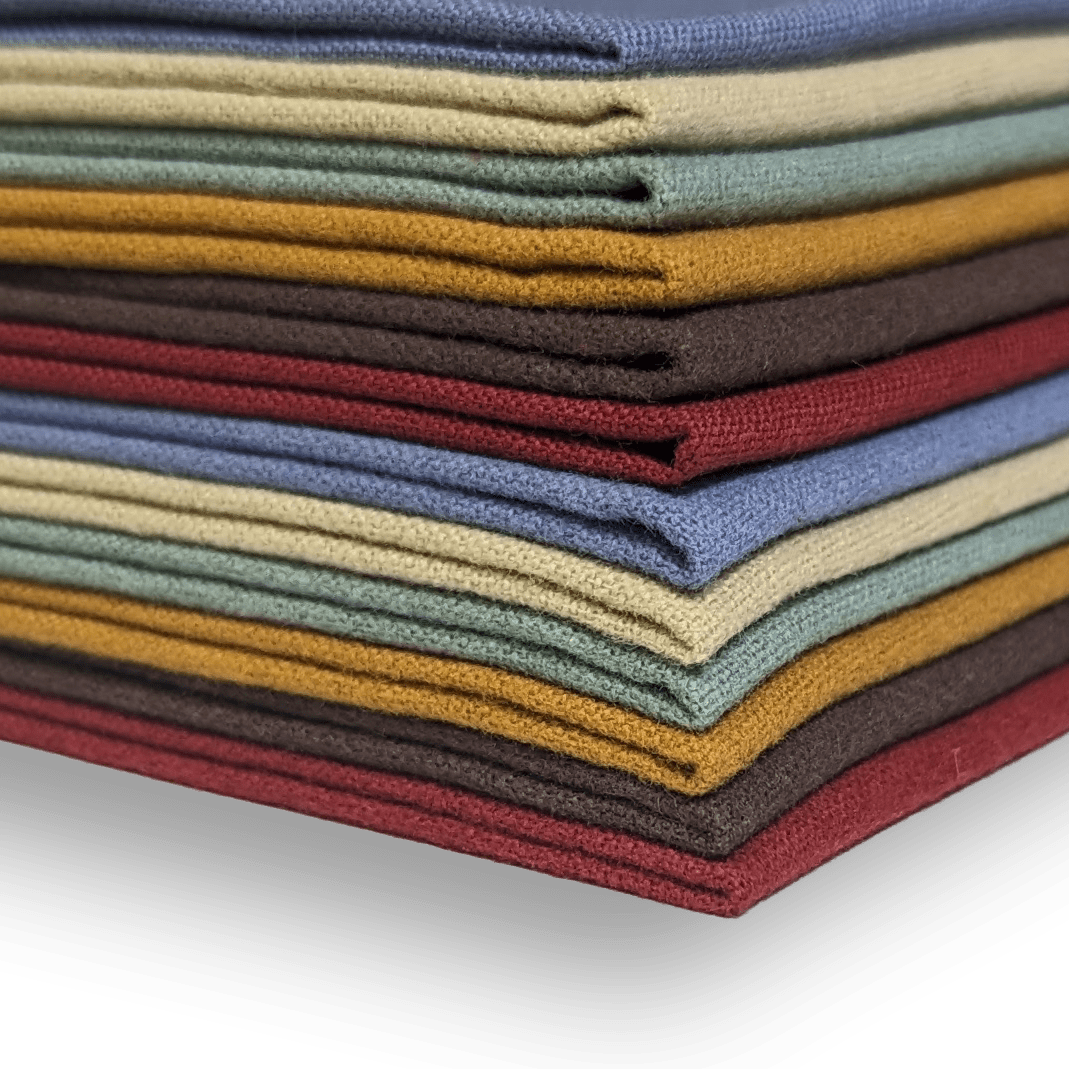How sustainable is mass-produced soap? Not too much. Here's a list of options for those that need to find a zero-waste soap:
Why Is Mass-Produced Soap Unsustainable?

Mass-produced soaps in both bar and liquid forms contribute to a vast plethora of environmental issues. The primary concern about soap is that many formulas contain palm oil, a substance that comes from the fruit of oil palm trees. The World Wildlife Fund says producing palm oil is a “major driver of deforestation,” meaning the demand for it leads to more trees being cut down and a subsequent loss of biodiversity. If you can avoid products with palm oil in them (i.e. many brands of soap), you absolutely should.
The next problem with soap is that it is almost always packaged in plastic. We know you’ve heard this story before, and the narrative hasn’t changed in this case-- soap packaged in plastic is wasteful. Liquid soap is especially wasteful because it uses so much plastic. Bar soap is inherently a zero-waste product because it doesn’t require packaging. However, both types of soap, when store-bought, often contain potentially harmful chemicals.

Three chemicals in particular that are regularly present in hygiene and cosmetic products are thought to be endocrine disruptors and contributors to other health concerns. The three chemicals are parabens, triclosan, and phthalates. The Ethical Consumer Magazine published a shopping guide for ethical soap in which one of their evaluation criteria was a rating on the policy companies had for toxic chemicals in personal care products.
You can search through their list of 58 soap brands to find out which companies had lax policies on toxic ingredients, plus several other points of evaluation for the ethical efficacy of the featured brands. It's a great place to check on the practices of name brands. In the meantime, here's a look at a few other alternatives.
What are the alternative options to unethically made soap?
In short, mass-produced and store-bought soap is no longer it. Fortunately, there’s plenty of ways to avoid unethically and unsustainably made soap.
Make Your Own Sustainable Soap

A creative and engaging way to reduce your environmental impact is to make your own soap. Not only is it inexpensive and fun, but it’s also productive-- the soap you produce can be used in your own house, given as a gift, donated to a local shelter, and more.
The most sustainable and accessible method of making soap we could find uses just three ingredients. Zero-waste writer Polly Barks designed the recipe with a list of thoughtful intentions in mind. She outlines her criteria for ethically made DIY soap in her article on the recipe: making soap must be financially and physically accessible for a variety of people, the ingredients have to be easy to acquire, and the process of making it needs to be simple.
We’ll give a brief overview of the necessary ingredients and steps, but for a full tutorial and more information you can read Barks’ article on custom soaps.
In order to make your own sustainable soap, you’ll need to avoid using palm oil. Barks’ recipe calls for a general “oil,” meaning any option that is accessible to you will work. Olive and coconut oil are readily available options, but castor or jojoba oil would also be great for smooth suds.

You’ll also need an eco-friendly base ingredient: castile soap. This type of soap in its plain, white bar form is safe and sustainable because it’s made from simple plant oils, making it a great product for those with sensitive skin. You can buy it in bars at most grocery or department stores for very inexpensive prices.
The bar castile soap needs to be soaked in water before melting with the oil as Barks details in her recipe. Once you melt the ingredients together after soaking them, you can pour them into store-bought molds or homemade cardboard molds.
Making soap does require a decent time commitment to collect ingredients and process them into the final product. That being said, there are other ways to find environmentally friendly soap.
Where To Buy Sustainable and Ethical Soap
If you’re not ready to spend an afternoon making soap at home, it’s easy to find brands with integrity that offer reputable products. We’ve compiled a list of alternatives to a variety of types of soap: from liquid options to spa bars, you will find your favorite zero-waste soap below.
Bar Soap for Hands & Body

Opting for bars of soap for both hand and body washing is ideal because the form preserves product and reduces waste. Liquid disappears quicker because it’s so easy to overuse, so choosing a bar saves you suds and money. Plus, there’s no plastic packaging, so you’re producing absolutely zero waste when you recycle or reuse the cardboard wrap the soap comes in. Best of all, well-made bar soaps are formulated with whole ingredients. It’s that simple.
Granola Girl is one skincare option that offers handmade soap bars with no palm oil and no harsh chemicals. If you’re looking for something to keep on the kitchen or bathroom sink for hand washing, their honey and citrus bar soap will leave your hands smelling like a bakery in springtime. You’ll also need one for the shower, so you might pick up their green tea and turmeric bar, or if you have very sensitive skin, try unscented soap made with goat's milk.
Liquid Hand Soap

If you just can’t give up liquid soap and switch to a bar, don’t worry! You can still make a liquid option sustainable. The biggest issue with liquid soaps is that they are packaged in plastic, and they contain palm oil. You can easily find a refillable soap dispenser online or at almost any department store-- you can probably even find one at the dollar store. The pump on your dispenser must be equipped for foaming soap. You can also reuse an old foaming dispenser if you have one.
Once you have a dispenser for your liquid hand soap, fill it with water and add a hand wash concentrate soap. The paste will make one gallon total, but you don’t have to use it all at once, simply dissolve a small amount into the soap pump and keep the rest of the concentrate for another time. This paste comes in recyclable cardboard and contains no harsh chemicals.
Bonus-- Laundry Detergent!

While laundry detergent isn’t a personal care item or cosmetic like soap is, it’s still a type of soap that comes into contact with our skin and water. If you’re ready to switch to a sustainable way to clean your clothes, try zero-waste vegan laundry detergent strips. Simply throw the strip into your washer and it will dissolve, leaving absolutely no waste behind.



